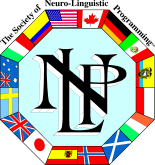Home » Personal Development Archives » Neuro-Linguistic Programming Archives » Responsible use of the Meta Model

Responsible use of the Meta Model is one of the foundations we learn people in our Trainings. As NLP as a technology constantly develops and evolves, we constantly update our knowledge by training at least once a year directly with the Society of NLP. It is critical to know the difference between asking questions to clarify your own understanding of someone else’s model, and asking questions to challenge their model. Even if I do, I always want to know when I have moved from one to another. Even if the line seems very gray, you can tell when you have made this shift. One mode is purely about gathering information and your subject will sense this. The other mode is about expanding and challenging their model of the world and this can be confrontational.
Ideally part of what is being taught here in this book is how to avoid being confrontational and how to maintain rapport as you use the Meta Model. But if you or your subject seem to get a sense that you are wondering. Or if they have yet considered something outside their existing frame of reference … that is the moment you have crossed over into challenging or expanding their model. Responsible use of the Meta Model.
In practice, when trying to help someone open up to new possibilities, I tend to weave back and forth, though in the beginning I am almost exclusively in an information gathering mode and towards the end, I am almost exclusively challenging or providing alternatives to the NLP Meta Model patterns. Responsible use of the Meta Model.
Modeling and Interviewing
Knowing when you have shifted from MODELING mode, into an INTERVIEWING mode is critical. You are encouraged to nurture that sense inside yourself that tells you when such a shift occurs. You may discover, for example, that you have a tendency to challenge patterns. Too soon for your best results, or the subject’s best results. That is a common tendency early on with learning how to effectively make use of the NLP Meta Model. Responsible use of the Meta Model.
So a very important element in the effective application of the Meta Model is tolerance and understanding of other people’s models. Do not be so quick to install your map on other people. Remember to look for what is not there. Responsible use of the Meta Model.
Some Exercises
Try for example, to do no interventions for a while as you learn simply to recognize NLP Meta Model patterns. Then as you gain flexibility and intuition, limit your interventions to one or two patterns, if any, and see how people respond to you.
Effective use of the Meta-Model, as you increase in skill, will rely on your ability to expand other people’s maps. Through becoming aware of the differences between your maps and theirs. Never assume that the entirety of your map will be effective for another person. The map is not the territory, but the territory is the map! Responsible use of the Meta Model.
About Mind Tools
Mind Tools provides NLP Practitioner and NLP Master Practitioner Trainings and Certifications. We educate you according to the renowned, latest and highest standards set by the Society of NLP. We will train you thoroughly in all the corners of Neuro-Linguistic Programming and some extras we learned from Dr. Richard Bandler directly.
- Mind Tools Co., Ltd.
- Responsible use of the Meta Model


